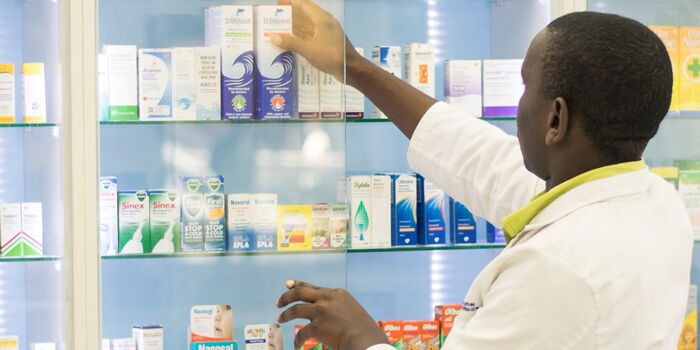The government has moved to calm growing public concern over reports alleging that more than 21,000 essential medicines had been blocked from entering the Kenyan market.
In a statement issued on Sunday, October 5, the Pharmacy and Poisons Board (PPB) denounced the reports, calling them misleading and designed to alarm the public unnecessarily.
The PPB, which regulates medicines and medical products in the country, firmly stated that no essential drugs had been stopped at the border and there was no disruption in supply for manufacturers, importers, or distributors.
According to the board, around 9,000 medical products that comply with both local and global standards of quality, safety, and efficacy are currently registered and available nationwide.
“Contrary to these falsehoods, there is no blockade of medicines in Kenya. The Board has duly retained approximately 9,000 registered medical products that meet national and international standards for safety, efficacy, and quality.
These products remain available for local manufacture, importation, and distribution,” PPB clarified.
Panic Over Online Claims
Over the past week, online reports suggested that new regulatory measures by the PPB had halted the entry of critical medicines such as insulin, HIV treatment, antibiotics, and cancer drugs.
This triggered fears that millions of Kenyans with chronic conditions could be left without life-saving medication.
Health experts warned that such a shortage would endanger the more than 1.5 million people living with diabetes and many more battling cancer and other long-term illnesses.
However, the board explained that what was being portrayed as a ban was, in reality, a routine regulatory process.
Standard Regulation, Not a Ban
PPB stated that the ongoing review is part of a standard renewal procedure under the Pharmacy and Poisons (Registration of Health Products and Technologies) Rules, 2022.
These regulations require that every market authorisation for medical products be renewed every five years to ensure continued compliance with safety and quality standards.
“All Market Authorisation Holders were advised to renew their registrations by 31 December 2025. This is standard global regulatory practice – not a ban or suspension,” the board said.
Crackdown on Illicit Players
PPB also pointed to resistance from certain groups who have been taking advantage of weak controls in the past.
The board accused “unscrupulous individuals and cartels” of spreading alarm because of stricter enforcement aimed at eliminating illegal importers and substandard products from the market.
Some industry players previously warned that the renewal process could cause temporary disruptions if licences lapse before renewal. The PPB, however, insisted that its systems remain active and functional, and no approved product has been blocked.
Public Reassurance
Reiterating its commitment to uninterrupted access to medicine, the board urged Kenyans to disregard misinformation.
“The Pharmacy and Poisons Board remains committed to ensuring continuous access to safe, quality, and effective medical products for the people of Kenya. We urge everyone to disregard misinformation and to work with us in safeguarding the health of our nation,” the statement concluded.
The government maintains that there is no crisis and that all licensed suppliers, manufacturers, and importers are free to continue distributing approved essential medicines across the country.
Join Government Official WhatsApp Channel To Stay Updated On time
https://whatsapp.com/channel/0029VaWT5gSGufImU8R0DO30


